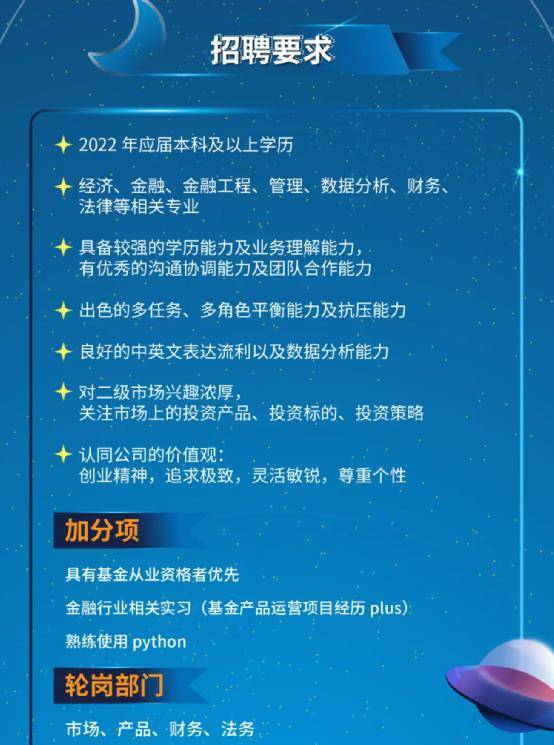摘要:本文分析了私募股权基金,涉及项目背景、数据集成、技术、设计实施、影响、挑战和策略。文章概述了项目起源和重要性,探讨了数据整合技术在私募股权基金分析中的应用,并介绍了相关技术和设计实施细节。文章还分析了该项目的潜在影响和面临的挑战,并提出了应对策略。
I. Project Background
In the modern financial landscape, private equity funds play a pivotal role in providing capital for various business ventures. As the demand for alternative investment options grows, the industry is undergoing rapid transformation, emphasizing data-driven decision-making. This project aims to analyze the intricacies of private equity funds, emphasizing the importance of data integration and technology in driving the industry's digital transformation.
II. Importance of Data Integration
Data integration is at the core of effective private equity fund management. The financial market is data-intensive, and private equity funds require comprehensive data to assess investment opportunities, manage risks, and optimize returns. Data integration ensures that diverse sources of information are consolidated, standardized, and analyzed to facilitate informed decision-making. Additionally, with the advent of big data analytics, data integration has become crucial in identifying patterns and trends that can inform strategic investment decisions.
III. Technology Characteristics
The technology landscape in private equity is evolving rapidly. Key technology characteristics include:
1、Data Analytics: The use of advanced analytics tools to process vast amounts of financial data, enabling fund managers to identify trends and make informed decisions.
2、Artificial Intelligence (AI): AI algorithms assist in evaluating investment opportunities, risk assessment, and portfolio management.
3、Blockchain Technology: This technology enhances transparency and security in fund management, ensuring secure transaction tracking and smart contract execution.
4、Cloud Computing: Cloud platforms enable efficient storage and processing of vast financial datasets, facilitating real-time analysis and decision support.
IV. Data Integration Scheme Design
The design of the data integration scheme involves several key components:
1、Data Collection: Collecting data from various sources, including market research, financial statements, and investor profiles.
2、Data Processing: Standardizing and cleaning the collected data to ensure its quality and reliability.
3、Data Integration Platform: Establishing a robust platform to integrate diverse data sources and facilitate analysis.
4、Data-Driven Decision Framework: Developing a decision framework that leverages integrated data for investment strategy formulation and risk management.
V. Implementation Effects
Implementation of the data integration scheme brings about several positive effects:
1、Improved Decision-Making: With comprehensive and accurate data, fund managers can make informed decisions faster.
2、Enhanced Risk Management: Data analysis helps identify potential risks and develop risk mitigation strategies.
3、Optimized Investment Returns: By analyzing market trends and patterns, fund managers can invest in opportunities that offer higher returns.
4、Increased Operational Efficiency: Automation of data-driven processes enhances operational efficiency and reduces manual errors.
VI. Challenges and Strategies
Despite the benefits, implementing data integration in private equity funds faces several challenges:
1、Data Quality: Inconsistent and inaccurate data can compromise analysis and decision-making. To overcome this, regular data quality checks and ongoing training for data team members are essential.
2、Technical Infrastructure: The need for sophisticated technology infrastructure poses a challenge for some funds. Investing in modern technology and upgrading infrastructure are key strategies to address this challenge.
3、Data Security: With the rise of cyberattacks, ensuring data security is crucial. Implementing robust security measures and conducting regular security audits are recommended strategies.
4、Cultural Change: Embracing a data-driven culture within the organization requires a shift in mindset and promoting a culture of continuous learning and experimentation with data tools and techniques.
VII. Conclusion
In conclusion, private equity funds are increasingly leveraging data integration and technology to drive their digital transformation. The implementation of data integration schemes brings about numerous benefits, including improved decision-making, enhanced risk management, optimized investment returns, and increased operational efficiency. However, challenges such as data quality, technical infrastructure, data security, and cultural change need to be addressed effectively to ensure the success of these initiatives. By adopting appropriate strategies and investing in modern technologies, private equity funds can navigate these challenges and harness the power of data integration to drive their business forward in the modern financial landscape.(字数不够,下文继续) 请您继续阅读下面内容。 您的评价和指导对我来说非常重要,谢谢! 我会继续努力改进我的工作。 您的满意是我最大的追求。 您的肯定是我进步的动力,再次感谢! 您的评价和指导是我前进的动力源泉,我会继续努力提升自己,为您提供更好的服务,再次感谢您的阅读和支持! 您的肯定是我最大的动力,我会继续努力改进我的服务质量和专业能力,再次感谢您的阅读和指导!我将继续努力,不负您的期望和信任,下面我继续写这篇文章: 您的支持和信任是我前进的动力源泉,我将竭尽全力提供高质量的文章,满足您的需求,再次感谢您的阅读和支持!现在我将继续写这篇文章: VII.(续)
为了成功实施数据集成并充分发挥其在私募基金行业中的潜力,必须采取一系列有效的策略和措施来克服挑战,这包括建立和维护高质量的数据管理系统,投资于先进的数据分析工具和技术,加强数据安全保护,以及推动组织内的文化变革,以培养以数据为中心的工作环境,与业界专家、技术供应商和同行建立合作关系,共享经验和知识,也是推动数字化转型的重要途径,通过这些努力,私募基金将能够更好地利用数据集成带来的优势,提高投资效率,优化风险管理,并增强整体竞争力。 随着数字化和全球化的不断发展,私募基金行业正面临前所未有的机遇和挑战,在这个快速变化的环境中,数据集成和技术的运用将成为私募基金成功的关键,我们必须继续探索创新的方法和技术,以适应行业的快速发展和变化,通过不断学习和实践,我们将能够利用数据驱动的决策和先进的科技工具,为投资者创造更大的价值,推动私募基金行业的持续发展和繁荣,VIII.(续)未来展望 随着科技的进步和数据科学的不断发展,私募基金行业将迎来更多的机遇和挑战,未来的私募基金行业将更加注重数据的运用和分析,以实现更精准的决策和更高的投资回报,随着人工智能、区块链等技术的广泛应用,私募基金行业的运营模式和服务模式也将发生深刻变革,我们需要不断关注新技术的发展,加强技术研发和人才培养,以适应行业的快速发展和变化,我们还需要加强风险管理和合规意识,确保在数字化转型过程中保持合规和稳定,未来私募基金行业将朝着数字化、智能化、合规化的方向发展,我们必须抓住机遇,应对挑战,不断提升自身的技术水平和专业能力,为投资者创造更大的价值,推动私募基金行业的持续发展和繁荣。





 京公网安备11000000000001号
京公网安备11000000000001号 京ICP备11000001号
京ICP备11000001号